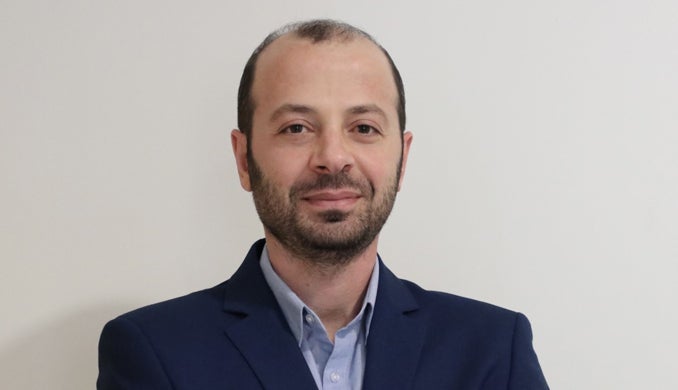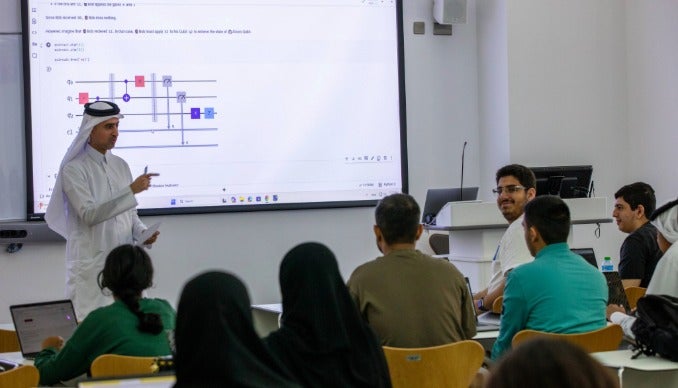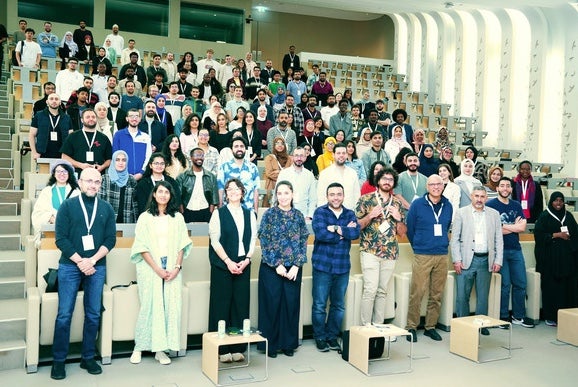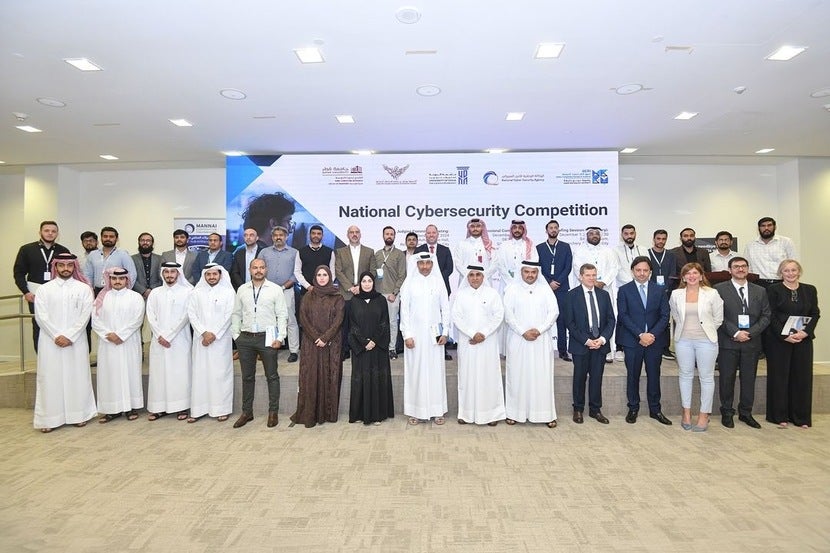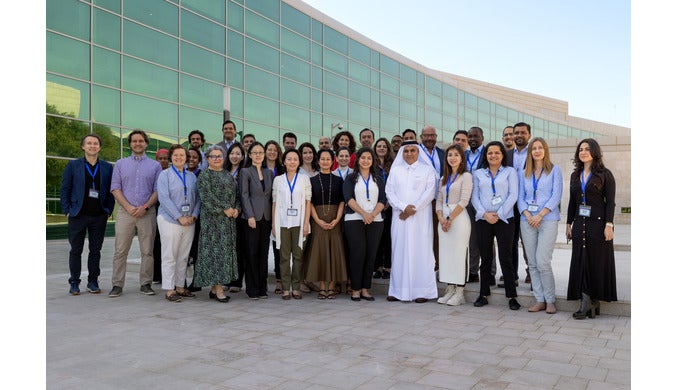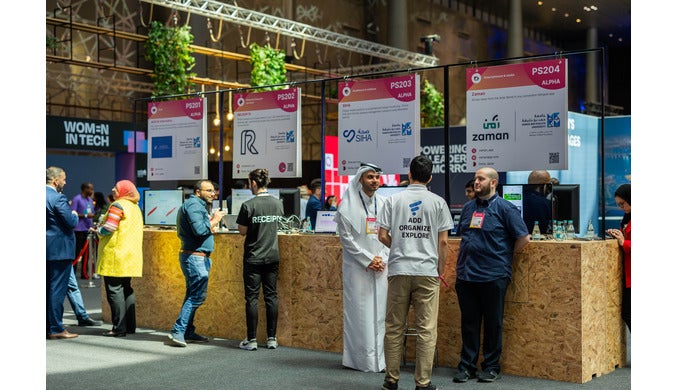Participants examine topics such as social media analysis, open-source investigations, and geospatial analysis
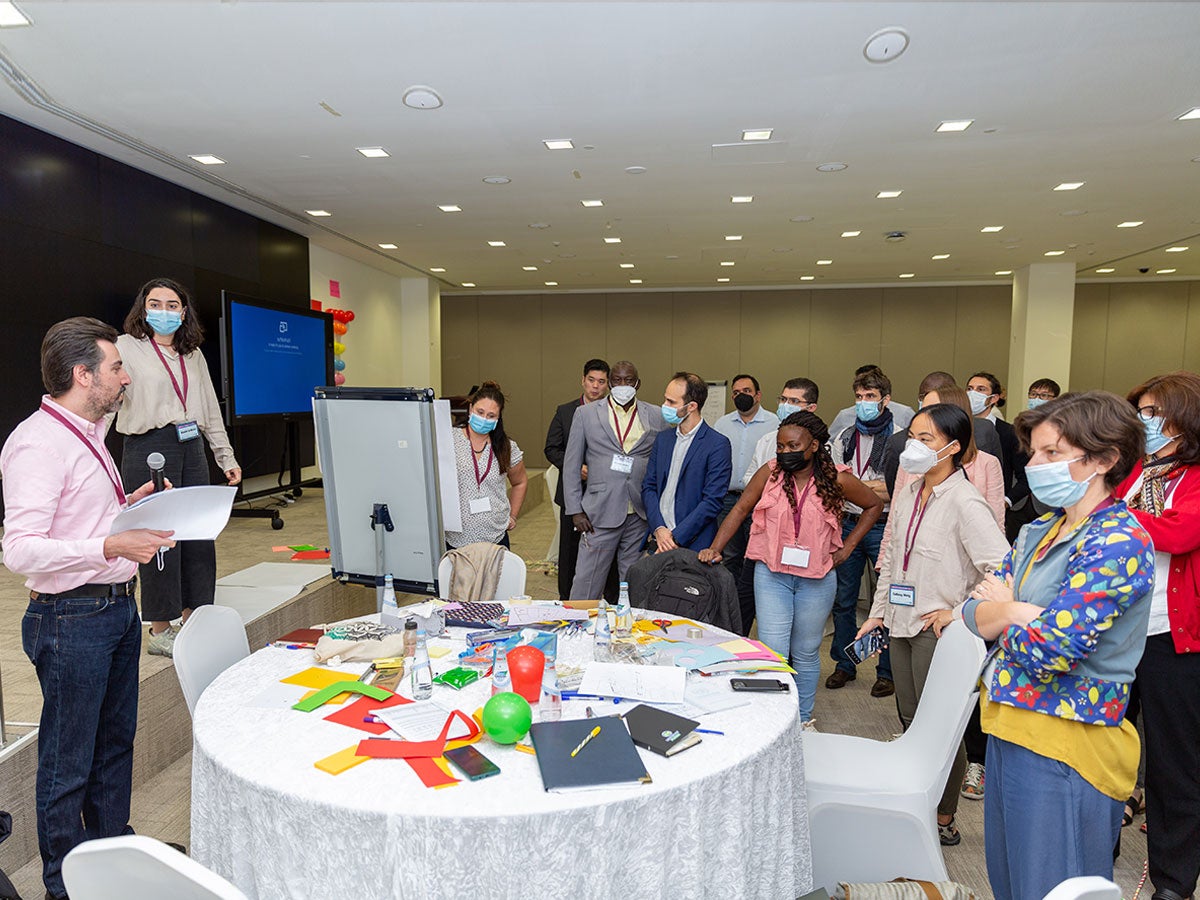
Doha, December 13, 2021– The Qatar Computing Research Institute (QCRI), part of Hamad Bin Khalifa University (HBKU), and the United Nations Department of Political and Peacebuilding Affairs (UN DPPA) jointly convened a design lab, titled E-Analytics, on innovative solutions for peace from December 6 to 8. The lab brought together an unlikely group of collaborators, including UN political analysts, computer scientists, journalists, designers, and others. Together, participants focused on re-purposing new technologies for preventing conflicts and building sustainable peace processes and resilient societies.
“We are excited to bring the UN DPPA Innovation Cell and our pool of experts back to Doha for a second time – especially since the pandemic separated us from our colleagues for almost two years,” said Dr. Ahmed Elmagarmid, Executive Director of QCRI.
He continued: “The collaboration between QCRI and the UN DPPA has helped us develop solutions for challenging problems in the field of peace. For example, with the ‘Diplomatic Pulse’ search engine, any user can analyze foreign ministry statements rapidly, saving precious time whenever a crisis breaks. This demonstrates the benefit of having specialists from different fields join forces.”
Noting that this is the fifth annual E-Analytics gathering, Martin Waehlisch of UN DPPA highlighted that “this year has been truly exceptional.”
He added: “We had over 300 applications for just around 30 seats. The selection process was difficult, as the level of expertise was outstanding. This year’s lab has shown again just how much innovation potential the UN has; Doha is a perfect place to share, develop, and expand ideas into real innovation.”
Diving deep into topics such as social media analysis, open-source investigations, natural language processing, and geospatial analysis, the course enhances core analytical skills. While this year the pandemic placed unprecedented constraints on the organizers, they adapted in response. Daanish Masood Alavi of UN DPPA noted, “This year we tried a hybrid structure for the course, doing deep dives on course topics virtually and before convening our peers for an in-person lab to stress test and iterate actual projects that harness innovation for peace.”
The ongoing collaboration between QCRI and UN DPPA continues to generate new opportunities. Dr. Ingmar Weber, Research Director of the Social Computing Group at QCRI, said, “Our vision at HBKU is to be an innovation-based, entrepreneurial university leading in solving critical challenges facing the world. This gathering offers an opportunity to do precisely that.”
For more information on the work of Qatar Computing Research Institute, please visit qcri.hbku.edu.qa
For more information on the work of the UN DPPA Innovation Cell, please visit https://futuringpeace.org/.
Related News
